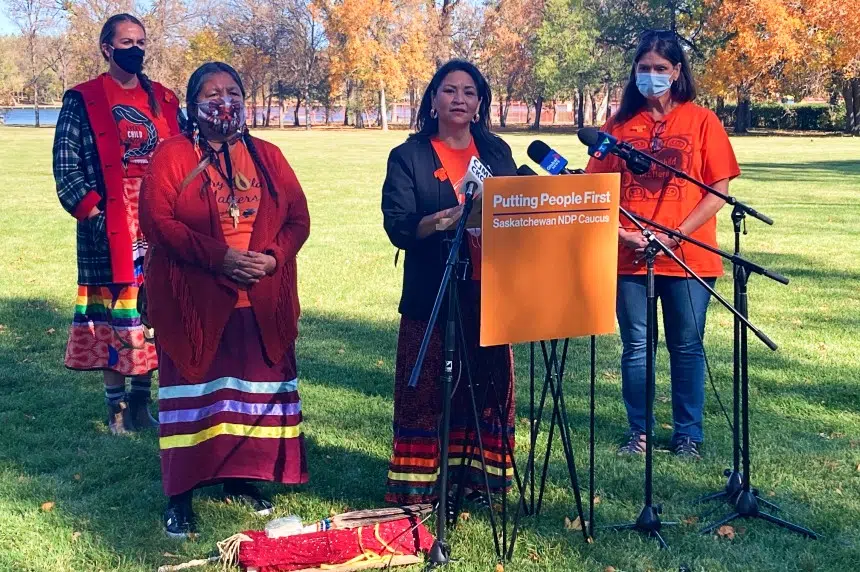In recent years, the West Lawn in Wascana Park outside the Legislative Building has been used as a base where Indigenous activists made their calls for justice.
On the country’s first National Day for Truth and Reconciliation , the NDP’s critic for First Nations and Metis Relations called for the government to designate the space as “The Chief Piapot Cultural Learning Grounds.”
Betty Nippi-Albright, also the opposition critic for Truth and Reconciliation, said the area could be used for people to learn about different cultures and to hold ceremonies or protests.
“It would be a great place for anyone to come and learn about … residential school survivors or learning about the treaties. It would be a great place for people to come. People identify this space as a place where Indigenous people can gather,” Nippi-Albright said after a news conference on Thursday.
She said Regina needs a place for people to gather, especially for Indigenous people living off-reserve in urban centres.
Compared to the Legislative Building, which is seen as a reminder of colonialism, Indigenous people feel comfortable and welcome in the West Lawn, she said. She noted it’s where groups like Justice for our Stolen Children and Tristen Durocher’s Walking with Our Angels have held their demonstrations.
Nippi-Albright said the area has been used for Indigenous ceremonies in the past as well.
Janet Bugler, an Elder from the Red Pheasant Cree Nation, is the great-granddaughter of Chief Piapot, a Plains Cree leader who spent years trying to negotiate better terms for Treaty 4 and challenged the Canadian government by holding ceremonies.
“He was here, he had his camp here, he went right through these lands, right to south of the valley,” Bugler said.
Nippi-Albright said she hasn’t seen willingness from the province to make the designation.
Earlier this year, the NDP expressed dismay that the park authority — the board of which is controlled by a majority of government-appointed members — did not conduct consultations when reviewing its bylaws.
She also took aim at the government’s “half measures” with reconciliation, such as making a proclamation for the National Day for Truth and Reconciliation but not recognizing it as a statutory holiday. That would have given everybody, not just federal employees, a paid day off.
“For myself and other residential school survivors, we are frustrated with this provincial government in dragging its feet and only doing half measures when it comes to reconciliation,” she said.







